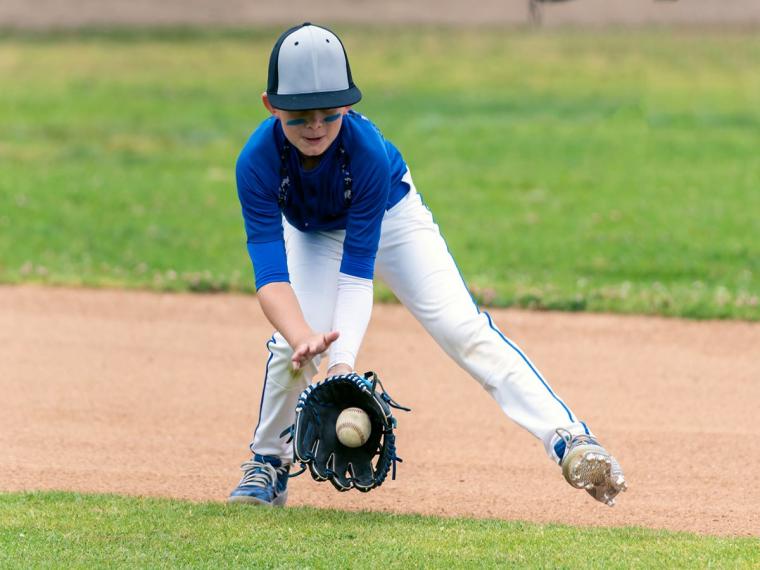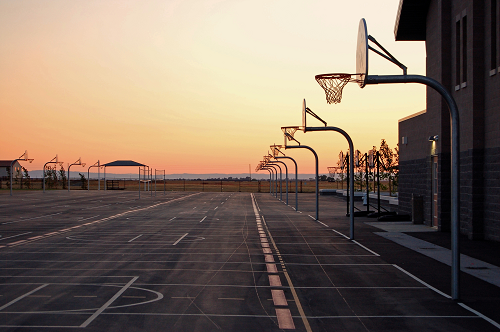

Youth sports are back in a big way and major cities such as Los Angeles and Detroit are focusing on affordability and accessibility — two issues that have long impacted who plays what in various communities.
On Nov. 6, Los Angeles Mayor Eric Garcetti launched PlayLA, a $160 million initiative that strives to ensure every child between the ages 5 and 17 has an opportunity to participate in quality, low-cost or no-cost sports programming in their neighborhood, via the Los Angeles Department of Recreation and Parks. Made possible by the LA28 Olympic Games and the International Olympic Committee, PlayLA is the single largest commitment to youth sports development in California, according to city officials.
“We seized an unprecedented opportunity during our bid for the [Olympic] Games to bring an historic community investment to Los Angeles, and the best part is we don’t have to wait until 2028 to see the benefits,” Garcetti said in a statement. “We’re delivering affordable access to youth sports programs across our city right now — and we know how transformative that opportunity can be, especially for low-income families.”
The City of Los Angeles is launching PlayLA with an initial $9.6 million grant from the LA28 Games to subsidize participation fees throughout the school year for leagues, classes and clinics for sports including tennis, golf, basketball, soccer, judo and aquatics.
PlayLA also will offer adaptive sports programs for kids with physical disabilities — a youth sports programming first for the city. For the inaugural season, PlayLA and the LA28 Games are exploring a variety of sports, including sitting volleyball, adaptive swimming, goalball, para equestrian, para surfing, wheelchair basketball, adaptive athletics, wheelchair tennis and para canoe.
Garcetti also launched SwimLA in 2018 to increase affordable opportunities for young Los Angelenos to learn a life-saving skill.
In Detroit, the Black Star Initiative (BSI) was created to increase soccer interest and participation in the city’s Black communities. As part of the program’s launch, BSI has partnered with Detroit City FC (DCFC) to host a late-October weekend of community-based activities at Keyworth Stadium and the Detroit City Fieldhouse.
“The goal of BSI is to help facilitate every step of the soccer journey for aspiring Black soccer players, coaches, and professionals while building community through the celebration and amplification of the diverse Black soccer culture,” Patrick Rose, BSI’s director, said in a statement. “Our aim is to introduce more Black Americans to soccer and reduce barriers to youth participation and coaching while engaging the soccer community, Black youth and their parents.”
As part of For Soccer Ventures, an independent movement to transform the sport in America, BSI has developed programming aimed to address systemic racism in soccer, provide better access to soccer resources, facilitate educational and professional pathways, increase community awareness and credibility of the sport, and inspire kids who have not yet been introduced to the game, according to a statement.
“If we’re growing the game in the city, we also have to grow the pool of folks that know how to teach the game properly,” T.J. Winfrey, chief of partnerships for DCFC, told ClickOnDetroit.com. “We have a youth club that’s based right here in the city. It’s just that BSI is coming in and really amplifying a lot of the work. We’re creating access to a sport that historically we haven’t had access to.”
That’s the mission of Youth Enrichment Services (YES) in Boston, too, which since 2015 has been making access to cross country skiing more affordable for children and teens from low- to moderate-income households.
“It is no secret that U.S. Ski & Snowboard and our sports are historically white and despite many great programs in place, we could use more widespread initiatives for marginalized communities to participate,” admitted organization president Tiger Shaw in an open letter written during a time of social unrest last year in the wake of the killing of George Floyd.
“Cross country skiing is a winter activity that most of our youth don’t normally have access to. Working with local partners, we are able to offer the program in a structured setting and introduce young people to a new confidence-building sport,” Bryan Van Dorpe, executive director of YES, recently told FasterSkier.com. “There are very few opportunities for recreation and physical activity during the winter months for Boston kids besides basketball and hockey. There’s a void in Boston, and it’s huge in terms of getting kids outdoors.”
YES Boston also offers other outdoor programming, including rock climbing, surfing, mountain biking, kayaking, and track and field.
“As an organization that is intentionally trying to get youth of color outdoors, I think an important step is re-creating what our outdoor spaces look like,” Elliot Simmons-Uvin, YES equipment specialist and senior outdoor instructor, told FasterSkier.com. “Representation in the sport for the young people YES serves is few and far between. Having role models that are representative of our youth is essential.”
Meanwhile, even sports that enjoy broad demographics are rethinking programming models. Take the Jr. NBA, the National Basketball Association’s global youth basketball program for boys and girls that teaches fundamental skills and core values of the game.
According to NBA.com, “[t]he global pandemic … allowed a light to be shined on deficiencies found in some communities regarding access to resources. The Jr. NBA launched a remote learning curriculum that was developed during the 2019-20 season that garnered 210 million views, providing youth players and fans in 118 countries ways to learn the game [the] pandemic.”
“The pandemic gave us an increased recognition that access to our sport wasn’t equal across communities, and it forced us to redouble our efforts to make sure that all people, all communities, have access to the game of basketball,” said David Krichavsky, the NBA’s head of youth development.
To that end, the Jr. NBA is especially focused on new initiatives designed to give youths more access to quality coaching and resources. Plans include having more than 10,000 youth coaches successfully complete a SEL (social and emotional learning) online training program that gives them tools necessary to provide a well-rounded foundation for players. Her Time to Play, a program dedicated to the female game, now offers several interactive activities and digital toolkits for females interested in playing or coaching, and the Jr. NBA Next Level Mentality program provides digital content about mind-body connection to more than 3,000 schools around the country.

